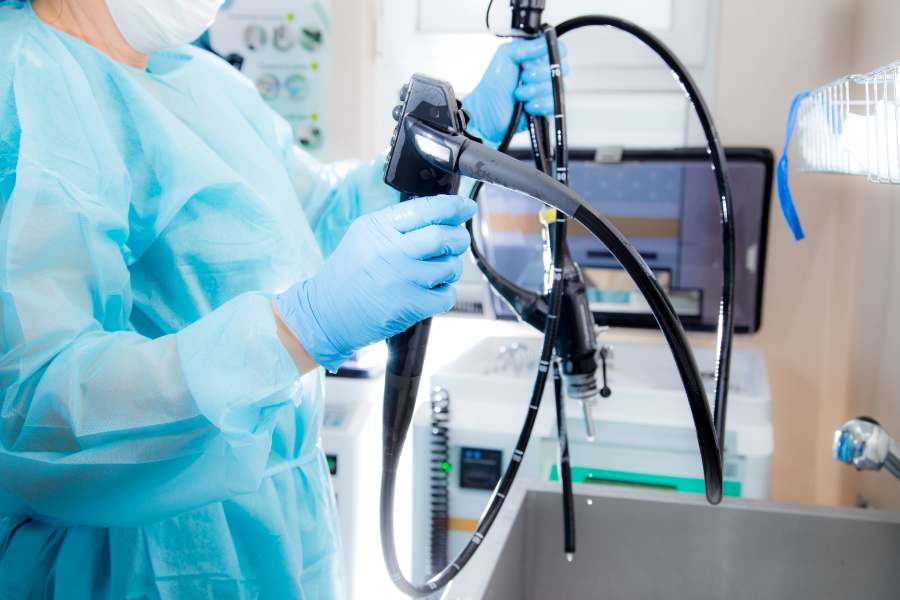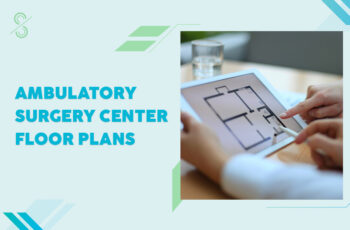Choosing the Right Equipment for your ASC
Ambulatory Surgical Centers (ASCs) may be important in delivering efficient and patient-focused care, so choosing the right equipment for your ASC might seem difficult. This is where we, as ASC consulting, come in, guiding you in making strategic decisions about equipment planning for your facility.
In this article, you’ll discover how ASC consulting may provide important insights to unlock the potential for improved operational efficiency, better patient experience, and outstanding care delivery.
Equipment Assessment and Needs Analysis
To keep smooth operations and the best patient outcomes, ASCs should do a complete equipment assessment and needs analysis.
With the help of ASC consultants, you could make a good decision about purchasing, maintenance, and upgrades by analyzing existing equipment, detecting gaps, and estimating future needs.
Let’s look at the importance of equipment assessment and needs analysis so you can improve your healthcare business.
The need for equipment assessment and needs analysis
An equipment assessment and needs analysis are processes that involve a thorough evaluation of all medical instruments, devices, and machinery within an ASC. These processes determine whether the current equipment meets the facility’s operating requirements, safety standards, and legal obligations.
By doing this thorough evaluation, you should be able to find any gaps or deficiencies in the existing equipment that might affect your work with the patients.
Additionally, the assessment might help you find areas where changes can be made, or upgrades are needed so that you could better cater to your patient’s needs.
Inventory
The first and most important stage in a thorough equipment assessment is a detailed inventory. You should make a list and document all of the equipment available in your facility for a better and more in-depth overview.
The inventory should include various products such as medical devices, surgical instruments, diagnostic tools, furniture, and other essential products.
It might be a good idea to record the specifications for each item, such as the model numbers, brand names, and technical specifications. You should also record the purchase date, warranty status, maintenance history, and current condition of each piece of equipment.
These things should give useful information about its lifespan, potential maintenance needs, and overall functionality.
Evaluating equipment performance
With the inventory in hand, ASC consulting can now assist in analyzing the performance of each piece of equipment of your ASCs. This assessment goes into important elements such as functionality, accuracy, and safety.
A well-maintained and properly functioning equipment should ensure patient safety and allow medical procedures to run smoothly.
Using our expertise in ASC consulting, you may get important insights that help decision-making about equipment upgrades, replacements, or necessary repairs.

Evaluating equipment usage
During the assessment process, ASC consulting might help in doing a detailed examination of the usage rates of different equipment.
Data-driven methods could be used to detect changes in equipment usage. This process should help recognize which items are not being used and which are overused due to the high demand.
We could give you advice on whether extra equipment is needed in a specific area, so you could successfully manage the demand or what could lead to more efficient operations.
Considering technological improvements
The ever-changing healthcare industry brings new ideas daily, and most ASCs should stay current on these developments.
Examining the most recent technologies should allow you to determine whether you should upgrade your existing equipment or get new technology to stay ahead of competitors and provide the best possible care.
Deciding to use the new technologies could result in a few advantages, such as improved patient results, better operational efficiency, and higher patient satisfaction.
We may be very beneficial in this regard because we are up-to-date on the newest innovations and can provide professional advice on which technologies are most suited for your ASC’s specific goals and objectives.
By working with ASC’s consultants, your healthcare facilities could ensure they use the most relevant and effective technical solutions, securing continued success and excellence in patient care.
Predicting future needs
Predicting future demands may be a critical component of ASCs because it requires careful consideration of your ASC’s growth plans and potential service expansions. By looking ahead, you may ensure that the equipment chosen today will still be relevant in the future.
Good equipment planning could give you a more sustainable and cost-effective approach to purchasing equipment.
However, don’t be scared because ASC professionals could help greatly in this process by giving you expert insights and foresight into industry trends and technological breakthroughs that may impact the ASC’s future demands.
Budget and cost analysis
After doing the assessment and needs analysis, your next step should be a detailed budgeting and cost analysis. This stage involves evaluating many factors, not just the initial cost of new equipment.
You should consider factors like continuing maintenance costs, training costs for staff to use the equipment correctly, etc.
We can give you professional financial insights and help you decide how to optimize your budget while still getting high-quality equipment that aligns with your facility’s needs.
Essential Equipment for ASCs
Here are the key equipment categories that play an important role in ASC settings. Knowing these categories and investing in the right equipment could improve the success and reputation of your ASC in the industry.
Surgical instruments
Surgical instruments are needed for performing numerous procedures accurately and safely. This category should include forceps, scissors, retractors, needle holders, surgical clamps, kidney trays, and hemostats.
High-quality instruments might be critical for achieving the best surgical outcomes and reducing the risks of complications. Regular maintenance and sterilization are important to extend the life and functionality of these tools.
Infection control and sterilization equipment
An infection control protocol is important to ensure patient safety, meaning if the instrument and equipment are not sterilized, they might raise the risks of infection.
Sterilizing equipment like, for example, autoclaves might have an important role in preventing infection spread. Single-use disposable items like gloves, gowns, and masks might also play a big role in infection protection in ASCs.
Imaging equipment
Many ASCs are focused on different areas, but some centers offer procedures that need imaging guidance. Imaging equipment such as X-ray machines and ultrasound devices might be included.
These pieces of equipment should help in accurate diagnosis and guidance during the procedure and post-operative examinations. You should make sure that your staff is properly trained in radiation protection.
Equipment for a specific purpose
Some of you may own an ASC that works in a specific specialty, such as orthopedics or dermatology. For example, if your ASC is a dermatology center, it should have specialized equipment to provide efficient and effective treatment.
You might need equipment like dermatoscopes for a detailed skin examination, machines for freezing skin, and laser devices for different operations.
The availability of specialty-specific equipment should help you help your patients get specialized care for their needs.
Endoscopy equipment
Some of you may also own an ASC requiring endoscopy equipment to perform some procedures.
Endoscopy is the process of inserting a long, thin tube directly into the body to examine internal organs in detail. This equipment could be used in imaging, surgery, and other medical tasks.
There are many specialized endoscopes, such as the ones for examining the stomach, the large intestine, and joint examinations. Light, camera, and video monitors might be important components of the equipment because they should allow you to see things clearer during the procedures.
This kind of equipment might benefit your patients, such as faster recovery and fewer postoperative complications.

Anesthesia delivery systems
You should have anesthesia delivery systems if you want your ASC to assure patient comfort and safety during surgical procedures.
You may need equipment that is secure and capable of providing a variety of choices, such as general anesthesia or regional anesthesia.
Your machines should have advanced features such as ventilators, vaporizers, and monitoring capabilities to ensure your patient gets proper distribution and monitoring during the procedure.
However, you should have staff trained for anesthetic administration to minimize potential risks.
Equipment for patient monitoring
As an ASC owner, your patients’ safety should be a priority; patient monitoring devices could help.
These devices should continuously monitor your patients’ vital signs such as heart rate, pulse, respiration rate, and blood pressure (although it may not be part of the vital signs group, many might measure it along with the other signs). These signs should give you real-time information about your patients.
Electrocardiography (a process that should record the heart’s electrical activity) and temperature monitoring could also be included in advanced patient monitoring systems. This should allow you to detect any changes or complications during surgical procedures.
A well-equipped operation room
A well-equipped operation room with tables and lights may be very important for the place where you do surgeries.
The operating tables should offer flexibility to ensure your surgeon has easy access and the patient is comfortable during the process. They should have adjustments and weight capacities suitable for different patient sizes.
You should have surgical lights that provide clear, shadow-free light so that your surgeon has the perfect visualization during the procedures.
Considerations for Equipment Selection
Here are some of the most important considerations when selecting equipment for your ASC.
Compatibility with ASC operations
The first and probably most important thing when choosing equipment for your ASC may be to find equipment that easily blends with the workflow.
You should analyze how the new equipment will fit into your ASC’s area, whether any infrastructural changes need to be done, and how it will work with other devices and systems.
You might also need to do staff training so they can operate and maintain the equipment. However, if you don’t feel secure about doing all of this, we could help you.
Functionality
You need to pay attention to functionality when choosing equipment for your ASC. Each piece of equipment should align with your specific facility and specialties. You should consider the range of procedures done in your ASC and what you need to help with these procedures.
You shouldn’t choose equipment that only meets the immediate needs of your ASC but also be able to handle future needs.
Another thing you should pay attention to is the ease of use of the equipment. It might have a direct impact on the efficiency of the work.
Quality
The quality of the medical equipment may also be very important to ensure patient safety. High-quality equipment should lower the possibility of malfunction or breakdowns during procedures. You should choose trustworthy manufacturers with a proven track record in the healthcare industry.
Product reviews and recommendations from ASC professionals could help identify high-quality equipment that might be perfect for your needs.
Reliability
Reliability may be closely linked to equipment quality, impacting your ASC’s efficiency and productivity. Breakdowns or malfunctions could lead to procedure delays, patient discomfort, or potential complications.
So, you should ensure that your equipment has a history of reliable performance, is backed by warranties, and has fast customer support.
Regulatory compliance
In the healthcare industry, following regulatory standards and certifications may be non-negotiable. Hence, you should choose equipment that meets industry regulations and safety standards.
Cost
While the cost of medical equipment may be an important thing to consider, it should not be the only factor in the choosing process. You should create a balance between your budget and investing in high-quality equipment.
The whole cost of the equipment should be carefully analyzed. This might include the purchase price and maintenance, training, and potential upgrades. Long-term benefits like improved patient results and increased efficiency might compensate for the higher upfront costs for quality equipment.
However, if you don’t feel 100% certain about any of these considerations, you can always reach out to ASC consultants.
Technology Advancements and Innovations
Medical technology advancements and innovations in ASC equipment may have had a big impact, affecting how surgeries and patient care are performed.
Here are some of those impacts:
- Better patient results – Using advanced imaging and techniques may increase patients’ positive results.
- Increased patient safety – Technological advancement in anesthesia delivery systems and patient monitoring devices may have improved patient safety during surgery.
- Training and education – Virtual reality (VR) and augmented reality (AR) may increase surgical training by allowing surgeons to perform complex procedures in a risk-free virtual environment. This could lead to improved surgical skills and knowledge.

Conclusion
Ambulatory Surgical Center (ASC) consultation might be important in choosing the right equipment for your ASC. As a healthcare professional, you may need a good strategy for the best outcomes, cost-effectiveness, and operational efficiency.
You could get useful insights from us as ASC consultants by analyzing the number of equipment options to find the ones that work with your facility’s unique needs.
ASCs who are equipped with everything they need could lead the way toward a future of outstanding performance.





